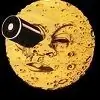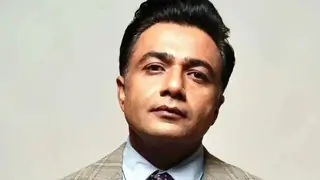Originally posted by: Kal El
You may have overlooked one very important thing I mentioned in the first post: my calculations were based on Valmiki's Uttarakanda and nothing else. I took this approach to keep things simple and preserve my sanity. Why? Because these details vary greatly among the texts and it would be insanely difficult to track everything down and even then they wouldn't all match up anyway.
Surya is linked with a lot of these elemental deities with the exact details varying from text to text. You are correct about Saranyu fleeing but most stories about her continue beyond that point. She left Chaya in her place and Surya had two sons from her, Shani Dev and Savarni Manu and, depending upon the text, daughters Tapati and Vishti. Surya discovered the truth (usually because Chaya cursed Yama one day, which was uncharacteristic of a mother) and found out from Vishwakarma (Saranyu's father) that Saranya was hiding (or doing tapasya) in the forest of Uttar Kuru in the form of a mare. Vishwakarma sliced off some of Surya's energy to make Sudarshana Chakra. Shiva's trishul, etc (exact details vary). Surya then transformed into a stallion and went to Saranyu. He won her over and united with her in that form, producing either 2 or 3 sons: the Ashvinis and Raivata. Raivata's origin has other variations: sometimes he is the son of Ragyi, another wife of Surya. Sometimes Surya also has another wife, Prabha, by whom he fathered Prabhat.
Kala (time) is sometimes identified with Yama and sometime they are separate deities. In texts where Bhaya is a sister of Yama, she is distinct from Yami.
As for Vidyutkesa marrying his aunt, it is not like aunt-nephew marriages are taboo everywhere in the subcontinent. In any case, it is best not to apply these social workings on to legends of the origins of elemental deities and such. That's a headache I prefer to avoid. 😆
Anyway, the text of the Uttarakanda simply says that Salakatankata was the daugher of Sandhya and she is usually taken to be Surya's wife (thought there are variations as usual). Whatever the case maybe, she is a devi and that is the important factor for the genetic khichdi. 😉
I forgot to mention that the Uttarakanda also says that Vishrava's mother was the daughter of Rajarishi Trnabindu.
To give you an idea of how much things tend to vary, compare the lineage of Ravana in Valmiki's Ramayan (Rm) with the version in the Mahabharata (MBh): according to the Vana Parva, Pulastya fathered a son, Vaisravana (Kuber), on a cow! Unlike the Rm where Kuber was born as Pulastya's grandson via normal reproduction, here he is Pulastya's son born of a cow.
Further, the Mbh says that Vaisravan left his father and went to Brahma. This angered Pulastya and he created Vishrava from half of himself, to teach Vaisravana a lesson. Meanwhile Brahma had granted Vaisravana boons of immortality, wealth, position of a lokpala, the favour of Shiva, a son named Nalakubera, lordship over yakshas and rakshasas and the city of Lanka, guarded by rakshasas. Kuber now learned that Vishrava (whom he regarded as his father since he was created out of half of Pulastya) was angry at him because he had left Pulastya for Brahma. To pacify Vishrava, Kuber sent him three rakshasi maidens called Puspotkata, Raka and Malini who were also expert in singing and dancing. Eventually Vishrava was pleased by them and fathered children with them. Puspotkata had Kumbhakarna and Ravana, Malini had Vibhishana and Raka had Khara and Surpanakha.
Not only are Sumali and Kaikesi out of the picture, but this version makes Ravana 50% Rakshasa while from his father's side he had human and I suppose some bovine genes as well. 😆
Another example is the boon that Ravana gets from Brahma. There is a small but significant difference. In the Ramayana, Ravana asks for protection from a host of beings but leaves out humans and animals out of arrogance. In other words, he is responsible for the loophole in his boon. According to the Mahabharata however, it goes like this*:
"Grant that I never suffer defeat,"
said Ravana,
"at the hands of gandharvas, gods,
Kinnaras, anti-gods,
Yakshas, rakshasas, nagas, and all
other creatures."
He doesn't mention "humans" directly but nevertheless, that last bit meant that all creatures were included in his request. It is Brahma who leaves out humans from the boon, thus creating the loophole. Ravana didn't mind because he didn't consider humans important.
You can see just how much the texts vary. This is why I kept to a single source. I like my sanity. 😆
*From P. Lal's transcreation





























